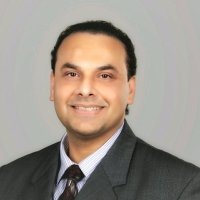From Coursework to Citation: The Journey Through Foundations of Clinical Research

“This program didn’t just teach me how to do research. It made research part of who I am as a physician.”
Clinical care has never been confined to a single discipline for Syed A. A. Rizvi, MD, PhD (Pharm), PhD (Chem). As a practicing psychiatrist in Illinois, he routinely sees patients whose mental health challenges overlap with metabolic and hormonal disorders. That intersection—between psychiatry and endocrinology — sparked questions he couldn’t yet answer.
“I had these clinical observations, but I didn’t know how to test them properly,” he says. “I needed a structured way to turn my ideas into research.”
That search led him to Harvard Medical School’s Foundations of Clinical Research certificate program, a transformative experience that expanded his skill set and reshaped his approach to medicine.
Building the Skills to Design Better Clinical Research Questions
Rizvi enrolled in the Foundations of Clinical Research program to build fluency in the fundamental methods of clinical investigation: study design, biostatistics, epidemiology, and real-world data analysis. But what surprised him most was how quickly the course became applicable to his work.
The program didn’t just provide theoretical knowledge; it pushed him to apply new skills to his work right away. “We were learning about meta-analysis one week and applying it the next,” he notes. “We weren’t just studying research — we were doing it.”
From Classroom Collaboration to Peer-Reviewed Publication
By the time the course was halfway through, Rizvi had already begun working on two manuscripts: one exploring psychiatric care and another examining the effects of a ketogenic diet on hormones in women with polycystic ovary syndrome. With input from the program faculty and in collaboration with another program participant, Dr. Karnzia Khalid, both papers were published.
“I wouldn’t have been able to write my papers if I hadn’t taken this course,” he says. “Learning to use R and Stata, and understanding how to think critically about data, made all the difference.”
Effects of ketogenic diet on reproductive hormones in women with polycystic ovary syndrome quickly gained traction in the academic community and was published in the Journal of the Endocrine Society. “It became one of the most highly cited papers in its field,” he shares. “We even received a personal note from the editor-in-chief, which was a proud moment.”
Rizvi attributes that success directly to what he learned in the program. “We structured the paper around what we were learning in real time throughout the course.”
A Pivotal Shift in Perspective and Practice
While the technical training was central, Rizvi also found tremendous value in the program’s global learning environment and interdisciplinary approach.
“Working with peers and faculty from around the world challenged the way I think,” he says. “It reminded me that good research—like good medicine — depends on collaboration.”
More importantly, the course gave him the confidence to use clinical research skills in his day-to-day work. “I used to feel intimidated by data,” he admits. “Now I feel equipped. I can run the analysis myself, interpret the results, and make decisions that are evidence based.”
Today, Rizvi continues to build on his training, expanding his research portfolio while staying rooted in patient care. For him, clinical research is no longer something other people do, it’s a central part of how he practices medicine.
“This program didn’t just teach me how to do research. It made research part of who I am as a physician.”
Written by: Meredith Faxon
